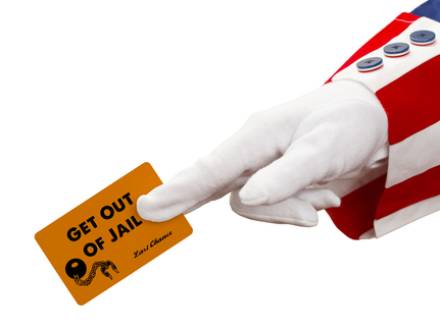The Importance of Preventing or Overturning Wrongful Convictions
 There are large numbers of people who are arrested and charged with crimes throughout the United States, and a significant percentage of these people end up being convicted even though they are innocent. A wrongful conviction can affect a person’s life in many ways, and they may be branded as a criminal, denied opportunities, and face difficulties for years or decades. These consequences illustrate the importance of a strong defense. A lawyer with experience representing clients in criminal defense cases can help people facing criminal charges take steps to prevent convictions and resolve their cases successfully.
There are large numbers of people who are arrested and charged with crimes throughout the United States, and a significant percentage of these people end up being convicted even though they are innocent. A wrongful conviction can affect a person’s life in many ways, and they may be branded as a criminal, denied opportunities, and face difficulties for years or decades. These consequences illustrate the importance of a strong defense. A lawyer with experience representing clients in criminal defense cases can help people facing criminal charges take steps to prevent convictions and resolve their cases successfully.
The Impact of Wrongful Convictions and the Need for Criminal Justice Reform
Over the past couple of decades, more attention has been paid to the issue of wrongful convictions. A large number of high-profile exonerations have occurred due to reexaminations of DNA evidence and other factors that led people to be convicted of serious crimes like murder or sexual assault. Researchers have estimated that between 2% and 5% of prisoners have been wrongfully convicted, which would mean that around 20,000 people throughout the United States are currently serving sentences in prison for crimes they did not commit.
Wrongful convictions can affect people from all walks of life, and they may involve both serious felonies and "minor" misdemeanors. In fact, wrongful misdemeanor convictions can be more serious than many people realize. People convicted of these offenses may face relatively lenient penalties, but the collateral consequences of a conviction can follow them for the rest of their lives.
The Michigan Innocence Clinic has highlighted one case in which a man was charged with stealing two six-packs of beer from an unlocked cooler at a local establishment. He was initially identified as a suspect based on security camera footage, and while he did not recall the theft, he admitted to police that he could have been the perpetrator. He later chose to fight the charges, but he was found guilty at trial and sentenced to 90 days in jail. After serving his sentence, he lost his job, which led to the loss of his home and the need to file for bankruptcy. Due to his criminal record, he has struggled to find new jobs and provide for his ongoing needs.
While the man in this case has attempted to have his conviction overturned, he has encountered obstacles when doing so. Even though another man has been identified after committing a similar crime, and that man signed a statement acknowledging that he committed the theft in question, the prosecutor in the case has refused to withdraw the charges and has continued to fight against overturning the conviction. This case illustrates the difficulties that many people face when dealing with wrongful arrests and convictions. They often face an uphill battle when attempting to secure justice, demonstrate their innocence, and avoid the ongoing problems that come with a criminal record.
Criminal justice advocates have noted the need for reform to prevent wrongful convictions. Ideally, these issues should be prevented before convictions ever occur. Issues such as misidentification of suspects, reliance on witness statements that may be faulty, and coerced confessions should be addressed to help ensure that people are not prosecuted for crimes they did not commit. Steps should also be taken to prevent situations where people agree to plead guilty to crimes in order to avoid lengthy prison sentences. By changing the approach that police and prosecutors take in criminal cases, the rights of defendants can be protected, and wrongful convictions can be avoided.
Contact Our Hartford Criminal Defense Attorney
While advocates are calling for reforms, and some officials may be attempting to make changes to the ways criminal cases are handled, many people still face concerns related to wrongful convictions. The best thing a defendant can do to protect themselves is to work with an attorney who can advocate for their rights and work to prevent a conviction. At Woolf & Ross Law Firm, LLC, our Connecticut criminal defense lawyer can provide the legal representation needed to defend against criminal charges and fight against unethical practices by police and prosecutors. Contact our firm today at 860-290-8690 to set up a free consultation and learn how we can defend you.






